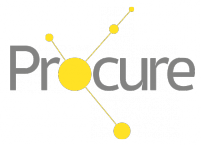Enhancing social benefits through procurement

There has often been a misnomer that procurement processes cannot consider innovation in procurement and particularly criteria around economic, social environmental benefits because it contravenes the European Procurement Directives and specifically requirements around competitiveness. This misnomer has meant that procurers across Europe have often not considered innovation in procurement and have instead focused purely upon the cost of the product or the service being procured.
At the last meeting of the Procure Network in Albacete in December 2016, we explored how this misnomer could be overcome and particularly how social criteria could be built into the various stages of the procurement cycle. Indeed, the European Directives are now actively encouraging municipalities and others to utilise the process of procurement to achieve wider social and environmental goals and suggests three main ways of doing this.
The first is that the Directives emphasise that the award criterion for all public contracts should be founded around the ‘Most Economically Advantageous Tender’ (MEAT) – this means that purchasers will be increasingly required to assess quality elements in their decisions and no longer purely focus on cost. The second is that the Directives actively encourage the development of innovation partnerships – these are tender procedures which allow procurers to develop solutions that are not yet available on the market. The third is the focus on life-cycle costing and enabling environmentally friendly and socially conscious production processes to be rewarded in the procurement decision.
In Albacete, we discussed how the principles of the Directives could be practically translated into the four stages of the cycle of procurement. There are various means which can be undertaken at each stage.
Design of the service (commissioning)
Mean 1 – Innovate for outcomes
The first is to adopt a Public Procurement of Innovation (PPI) approach whereby suppliers are engaged to create a good or service which is not already on the market.
Mean 2 – Link design to wider issues
The second is for commissioners to actively consider in the design process what wider issues their product or service can potentially address; they can then embed this into the procurement process.
Procurement strategy and tender processes
Mean 3 – Link procurement to wider priorities
The third is to frame procurement strategy in relation to the wider priorities facing a city such as addressing unemployment.
Mean 4 – Set criteria around social factors
The fourth is to allocate criteria in procurement around social factors. So, procurers may have more of a balanced decision-making process where 45% is awarded on cost, 45% on quality, and 10% on social factors.
Mean 5 – Ask questions around social factors
If cities are to include considerations around social factors in their decision-making processes, then they need to ask questions around social factors in their tender documentation. This will enable them to subsequently score bidders against these considerations.
Mean 6 – Through including social clauses
Where appropriate and relevant to the subject of the good or service, cities can include specific obligations on potential suppliers to deliver social clauses. For example, they can ask construction companies to create one job or one apprenticeship per million euros spent with that organisation.
Making the decision
Mean 7 – Score against social criteria
If Cities are involving means 3, 4, 5 and 6 (as described above) in their procurement strategies and tender processes, then they need to make sure that they score against these in making the decision as to who wins a particular contract.
Monitoring
Mean 8 – Contract manage and monitor
The final mean of practically embedding social considerations into procurement is to actively contract manage and monitor. This can be done through a dedicated contract manager or through issuing questionnaires to all suppliers on an annual basis.
Each of the cities in the Procure Network will be thinking in the coming months how they can start to embed social value criteria into their procurement processes to enable the objectives of the European Procurement Directives to be realised.


